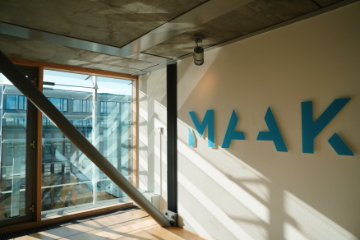
International disputes often raise challenging legal questions. One of the first issues that arises is: Which court has jurisdiction? Is the Dutch court competent, or should the case be brought before a foreign court or tribunal? The answer to this question can have far-reaching consequences, affecting the legal strategy, costs, and enforcement of judgments in cross-border cases.
In the Netherlands, jurisdiction is determined by a mix of Dutch national law, European regulations, and international treaties. Additionally, parties can influence jurisdiction through forum selection clauses in contracts. This is particularly relevant for businesses operating internationally that seek legal certainty regarding potential disputes and want to avoid unexpected litigation in foreign jurisdictions.
Understanding how Dutch courts determine jurisdiction is essential for companies, investors, and individuals involved in international transactions. The Netherlands has a well-established legal system with a strong reputation for neutrality, predictability, and efficiency in handling cross-border disputes. Knowing when a Dutch court is competent can provide strategic advantages, including access to an independent judiciary and the ability to enforce judgments within the European Union (EU) and beyond.
This article, written by experienced Dutch lawyers in Amsterdam, explores the legal framework governing jurisdiction in Dutch law, the key rules that determine whether the Dutch courts have authority, and the strategic choices businesses and individuals should consider when dealing with international litigation.
The Structure of Dutch Courts
The Dutch judicial system consists of various courts that handle different types of legal matters, including civil, criminal, and administrative cases. In the context of international disputes, the following District Courts (Rechtbanken) play a crucial role in adjudicating cases at the first instance level:
- Rechtbank Amsterdam – Located in Amsterdam, this court is often involved in complex commercial disputes, international trade cases, and financial litigation due to the city’s status as a major economic hub.
- Rechtbank Den Haag – Based in The Hague, this court has jurisdiction over many government-related disputes and frequently deals with international law and human rights cases, given The Hague’s role as the home of the International Court of Justice and the International Criminal Court.
- Rechtbank Gelderland – Located in Arnhem and Nijmegen, this court handles a broad range of civil and commercial cases, including disputes involving international parties.
- Rechtbank Limburg – Based in Maastricht and Roermond, this court covers cases arising in the southern region of the Netherlands, including cross-border disputes due to its proximity to Belgium and Germany.
- Rechtbank Midden-Nederland – Located in Utrecht, this court deals with significant commercial litigation and intellectual property cases.
- Rechtbank Noord-Holland – Covering Haarlem, Alkmaar, and other northern municipalities, this court handles a wide range of civil disputes, including those with an international element.
- Rechtbank Noord-Nederland – Based in Leeuwarden, Assen, and Groningen, this court has jurisdiction over disputes involving businesses and individuals in the northern provinces.
- Rechtbank Oost-Brabant – Located in ’s-Hertogenbosch, this court frequently deals with commercial and cross-border cases, particularly in the high-tech and automotive industries.
- Rechtbank Overijssel – Based in Zwolle, Almelo, and Enschede, this court covers legal disputes related to business transactions, international trade, and commercial disputes.
- Rechtbank Rotterdam – Given Rotterdam’s status as Europe’s largest port, this court specializes in maritime law, international trade disputes, and commercial litigation.
- Rechtbank Zeeland-West-Brabant – Located in Breda and Middelburg, this court handles international disputes related to cross-border business and trade.
Each Rechtbank (District Court) has jurisdiction over civil disputes and can hear cases involving international elements, such as foreign companies doing business in the Netherlands or contracts with a Dutch nexus. Appeals from these courts go to one of the Courts of Appeal (Gerechtshoven), and the highest court in the Netherlands is the Supreme Court (Hoge Raad), which provides ultimate legal clarity and consistency in the interpretation of Dutch law.
By understanding the structure and specialization of Dutch courts, businesses and individuals can make informed decisions about where to litigate disputes and how to structure contracts to maximize legal certainty.
Dutch Court Competence in General Terms and Conditions
- General Rules of Jurisdiction:
- Dutch courts determine jurisdiction based on national rules, including subject-matter and territorial jurisdiction. These are governed by the Dutch Code of Civil Procedure, which specifies the type of court (e.g., District Court or Subdistrict Court) and its location based on the claim’s nature and parties involved.
- Choice of Court Agreements:
- Parties can agree to designate a specific court to handle disputes arising from their contract. For example, companies often include a clause in their general terms stating that disputes will be resolved exclusively by a specific court, such as the Amsterdam District Court.
- If international elements are involved, agreements must comply with treaties like the Hague Convention on Choice of Court Agreements or EU regulations.
- Netherlands Commercial Court (NCC):
- For complex commercial disputes, parties can opt for proceedings in English at the NCC. However, this requires an explicit clause in the contract stating that disputes will be resolved by the NCC.
- Battle of Forms:
- In cases where both parties refer to their own general terms and conditions, Dutch law applies the “first shot rule.” This means the terms referenced first generally prevail unless explicitly rejected by the other party.
- Consumer Protection:
- Dutch law includes strict rules to protect consumers from unreasonably onerous terms in general conditions. Terms deemed unfair can be annulled under Articles 6:236 (“blacklist”) and 6:237 (“greylist”) of the Dutch Civil Code.
- International Context:
- If a dispute involves international parties, jurisdiction may also depend on choice-of-law clauses and international conventions. If Dutch courts are chosen as competent, Dutch law typically governs the proceedings8.
Dutch court competence for disputes over general terms and conditions in the Netherlands depends on procedural rules, territorial jurisdiction. Contact our Dutch attoneys for all your inquiries on this Dutch law topic.
The Legal Framework for Dutch Jurisdiction
Jurisdiction in the Netherlands is not solely dictated by Dutch domestic law. Because the Netherlands is part of the European Union and a signatory to various international treaties, Dutch courts must consider multiple legal sources, including:
- Dutch Code of Civil Procedure (Rv) – This provides the fundamental national rules on jurisdiction.
- Brussels I bis Regulation (EU 1215/2012) – Governs jurisdiction within the European Union, ensuring a harmonized approach to cross-border legal disputes.
- The Hague Choice of Court Convention – Allows parties in international contracts to designate a specific court for dispute resolution.
- Lugano Convention – Extends the Brussels I bis principles to non-EU countries such as Switzerland, Norway, and Iceland.
Additionally, Dutch case law (jurisprudence) plays a crucial role in interpreting these rules, meaning that jurisdiction can shift based on judicial developments. This dynamic nature makes it essential for businesses and individuals involved in cross-border disputes to seek specialized legal advice in the Netherlands.
Furthermore, Dutch courts place significant emphasis on pragmatism and legal certainty, making the Netherlands an attractive jurisdiction for resolving international disputes. The predictability of Dutch procedural law and the impartiality of its judges make it a preferred forum for many multinational corporations and high-net-worth individuals.
Conclusion: Dutch Courts as a Strategic Choice for International Disputes
The question of whether a Dutch court has jurisdiction in an international legal dispute depends on a combination of national law, European regulations, and contractual agreements. For businesses operating internationally, careful planning and expert legal guidance are crucial to avoid unexpected litigation in an unfamiliar jurisdiction.
By leveraging the predictability and expertise of Dutch courts, parties can secure a stable legal framework for their cross-border activities. Whether through careful contract drafting, jurisdictional analysis, or proactive legal action, working with a Dutch lawyer ensures that your legal position is well protected.
Legal Assistance with an International Dispute in the Netherlands
Our Dutch law firm in Amsterdam specializes in cross-border litigation and jurisdictional matters. Please feel free to contact our adept team at MAAK Advocaten.







